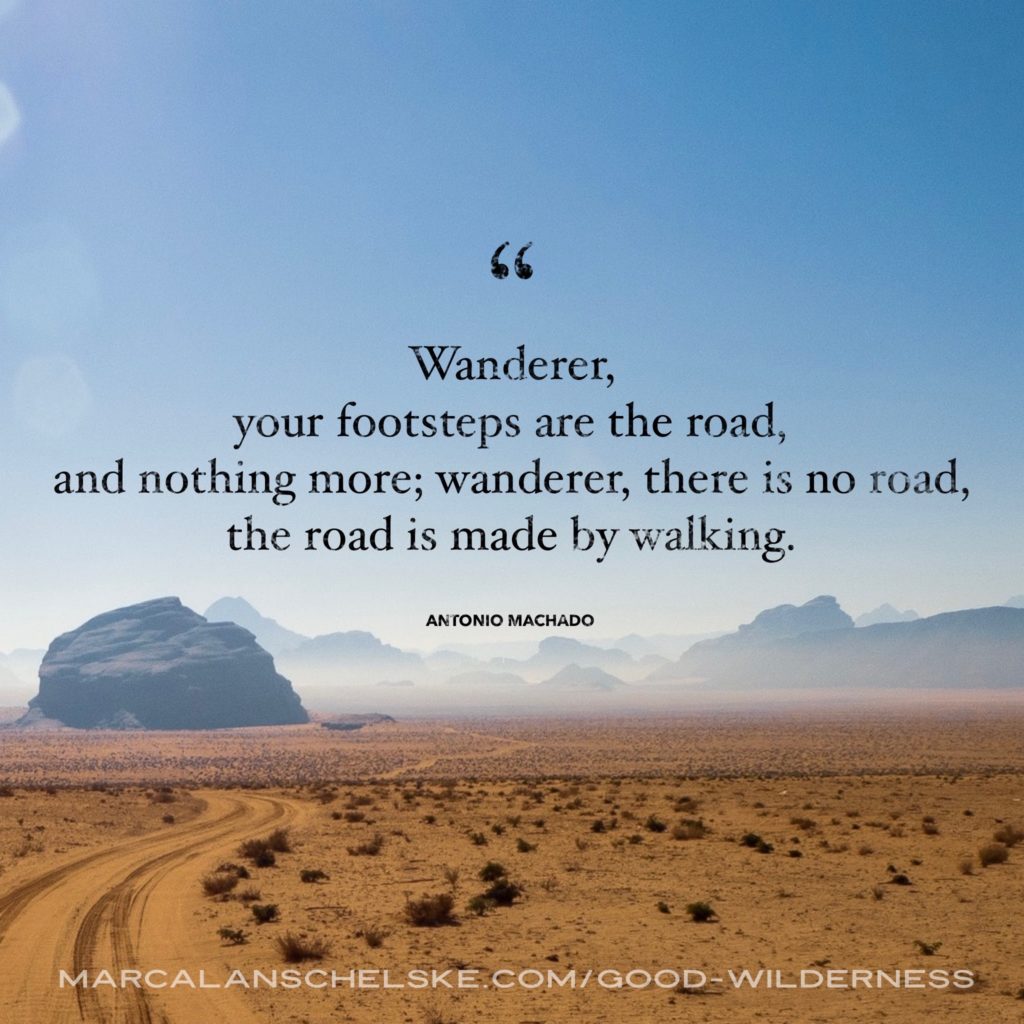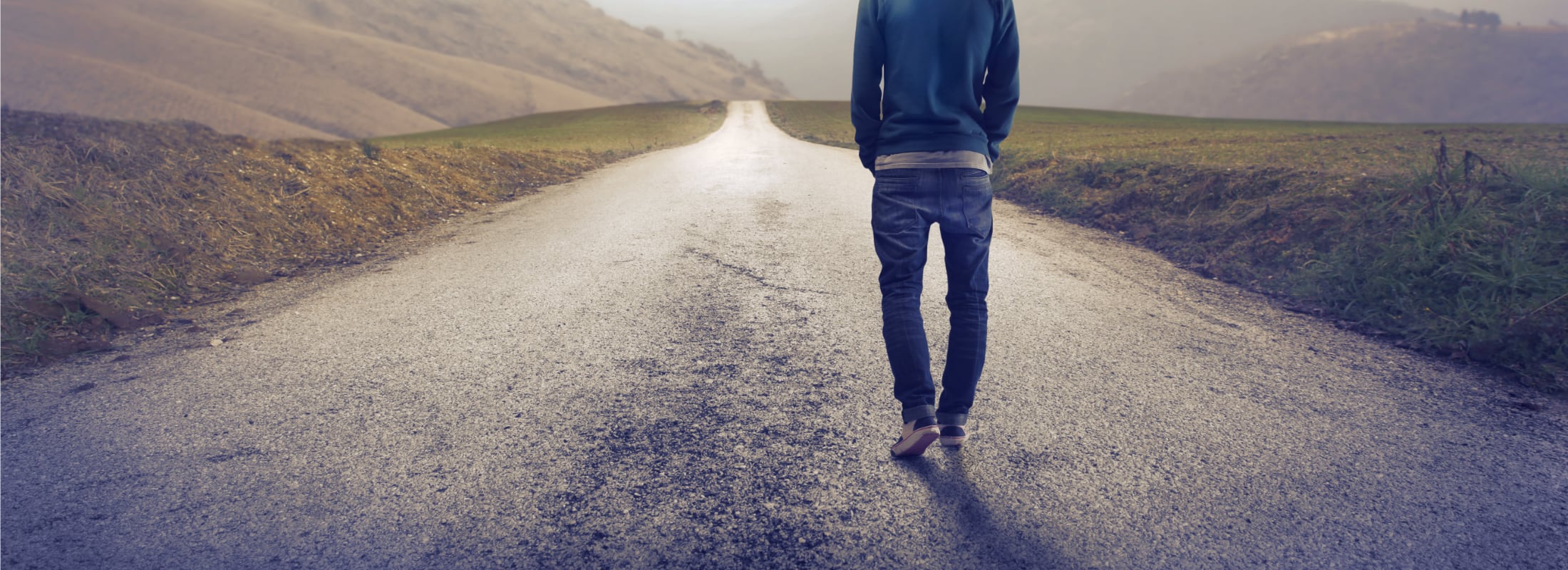5 min. to read.
God, I hate uncertainty. I don’t like not knowing what’s coming next, not having a plan, not being able to make a well-informed choice about a long-considered path forward.
I grew up in a church community that trained us well for certainty. To be sure about what’s right and wrong, clear about what happens when we die, certain about the meaning of every verse of scripture. That worked so well for my risk-averse temperament. I could listen, study, and reflect. Then, knowing the path forward, I could make the right decision. To be certain was to be secure.
And then life happened.
Grief and loss, circumstances, deconstruction—these things wrench us out of certainty, dumping us unceremoniously in the wilderness. Turns out the old saw about death and taxes is true. It seems like life happens in an ongoing sequence of in-between spaces.
That in-between, the liminal space where you are uncertain, is a natural part of life and even spiritual growth. That was hard for me to believe at first, and I stomped my feet quite a bit, but it’s true.
The wilderness is a normal part of life and maturity.
In my last post, I offered the encouragement that, as difficult as the wilderness is, at least you are not alone. The wilderness is no alien landscape to God, and many others share that space with you. (Read about that here.)
But there is something else. The wilderness is not just something to be endured, something for us to rush through on our way to the next certainty. It’s good for us.
There is something else we find in these in-between spaces. In the wilderness, we are changed. When our certainty, our expectations, and plans, and goals are stripped away, what’s left?
At first, it can seem like not much is left. That can be terrifying. The wilderness stretches us in ways we would never choose or expect. We have to learn to trust the Divine presence in ways that were not necessary when our life was fully in hand, no matter how pious our God-talk. The result? We become someone new.
The Wilderness transforms us.
Before the wilderness, Abraham was a comfortable patriarch of an unknown family; after the wilderness, he was the father of nations and the progenitor of three world religions.
Before the wilderness, Joseph was an entitled brat, expecting his family to cater and bow; after, he was the kind of man who could spend his life in service to save his people.
Before the wilderness, Israel was beaten down, a people defined by four hundred years of slavery. After, they were a people with their own culture, identity, and land.
The wilderness trained Moses for leadership. It taught David to trust. It gave Elijah spiritual clarity and formed John the Baptist into a single-minded herald of revival and the coming Messiah. In the wilderness, Jesus defeated the temptations of power and self-preservation, and a few years later, the Apostle Paul found clarity about his new mission and master.
The wilderness—this liminal space between who we were and who we will be—is part of what changes us. Be certain. You will be someone different on the other side.

Let the Wilderness be a teacher.
The story of Abraham used to trouble me. God shows up. What was that experience like? The text tells us nothing. All we know is that an unknown God comes to Abram and tells him to leave everything behind to head into the wilderness. And for what end? To go “to the land, which I will show you.”
No place name to research. No map. No expectation for how long the trip would take. Nothing to define the end other than this: You’ll know it when you get there. I’ll show you.
Disconcerting, right? For my temperament, it seems terrifying. Yet, I’m learning. I’ve been through some wilderness experiences, and I didn’t die. I’ve seen how growth happens. So, I’m less afraid of the in-between than I used to be. And so that’s where I find myself today.
I do not know what is next. Maybe that’s true for you as well. For me, the questions are about plans, future projects, financial security, and raising kids. For you, the questions may be different.
A past version of myself would be overwhelmed with anxiety. I would have scrambled to take on new projects to drive the anxiety from my thoughts, rushed to busyness. That’s not a healthy path, I’ve found.
Abraham made that journey by taking the one right next step. That’s where we learn to trust. Just take the one right next step. The changing that’s needed will happen in the journey. In this way, the wilderness becomes our teacher. We become who we need to be.
Spanish poet Antonio Machado wrote: “Wanderer, your footsteps are the road, and nothing more; wanderer, there is no road, the road is made by walking.”
That’s the painful truth. It seems that’s also how God works to grow us. Not often in lecture halls and laboratories. Not often by watching videos and reading books—as helpful as all those learning resources can be. But almost always by walking the path.
So, let’s walk. One next step. That is how we make it through the wilderness, and (maybe more importantly) that is how we become the person we can be.

Beautiful, Marc. Thank you. That quote is a gem. I’m finding myself in LOTS of wilderness lately, and realizing that the fear of going into the wilderness was much more painful than the wilderness itself. It’s actually quite miraculous in here! 🙂
Wow. yes! “The fear of going into the wilderness is much more painful than the wilderness itself.” That’s SO right on.
This ties in perfectly with the truth you taught in “How to Grow Spiritually…”–that all of life, every moment is spiritual (your phrasing was more eloquent, but that’s what I remember).
Immanuel is with us in the highest heights and the lowest depths, in darkness and in light. It must be so pleasing to our Lord when we, like Paul, learn how to be content in every circumstance, never because the enemy might have been active or life is just dark sometimes, but always because we know our God is greater and He has enclosed us behind and before. Thank you for this post.
That’s a great connection, Carol. When we operate from the perspective that “only certain activities, places, or times are holy,” then the wilderness can be terrifying. It seems that God has abandoned us. Why are we in this bleak pace? Did we do something wrong? Are we being punished? But if we are operating from the perspective that “all of live is spiritual,” then the wilderness is just one more circumstance we find ourselves in where we are accompanied by the Spirit of God. Just another day with something to learn. That’s a major difference in perspective and peace.